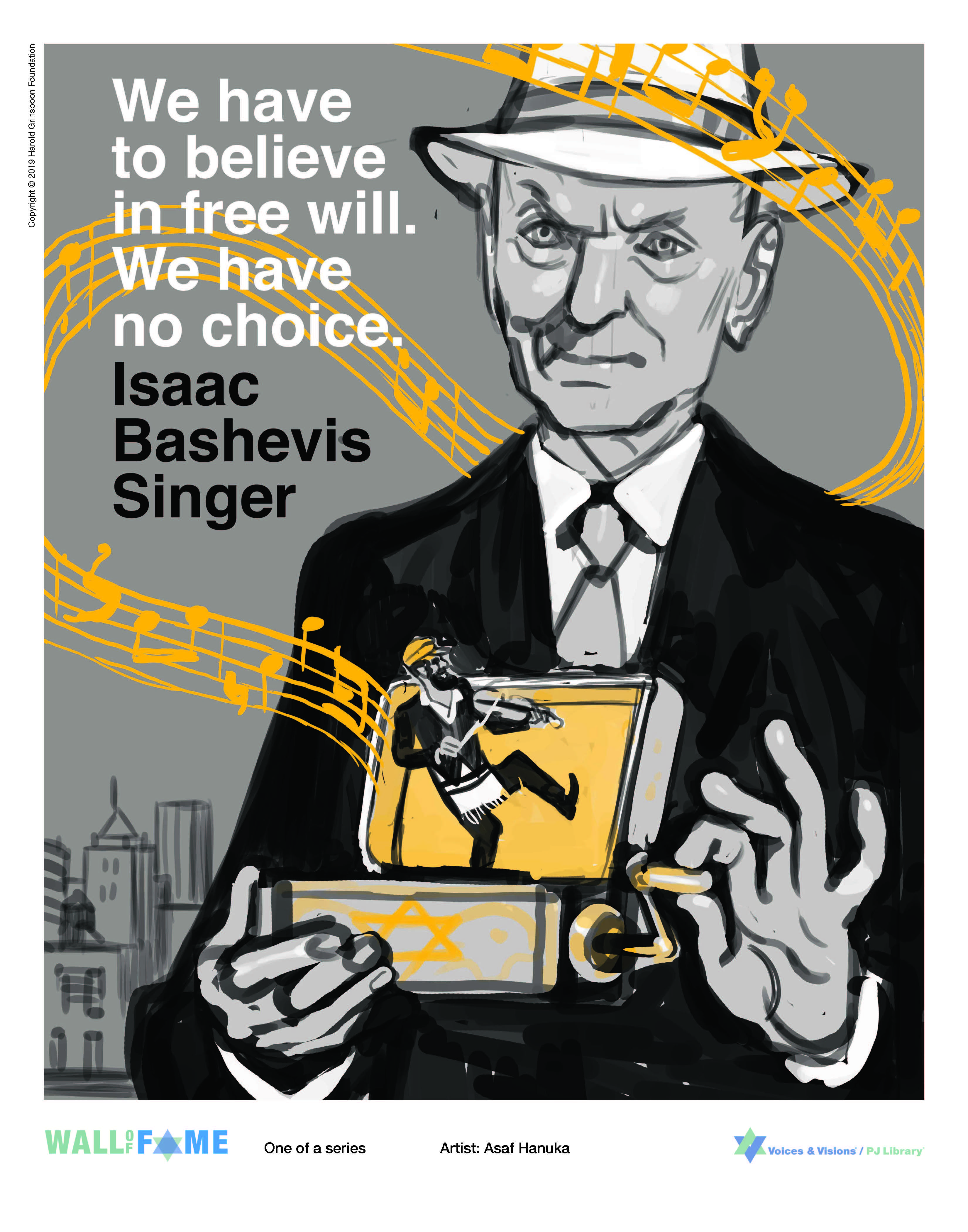Asaf Hanuka is an Israeli cartoonist and illustrator. He studied at the French Emile Cohl School of Design and has received prestigious awards, including the Society of Illustrators’ Gold Medal, Communication Arts Award of Excellence, and 3x3 Silver Medal. He collaborated with his twin brother Tomer on the Bipolar comic series and continues to document his own life in the weekly comic series The Realist. Hanuka’s work has appeared in Time, Rolling Stone, The New York Times, The Source, and The Wall Street Journal.
"I wanted to present Isaac Bashevis Singer as an eternal immigrant, someone who moved into a new culture but somehow managed to stay in his old culture. He is holding a ballerina chest, which represents a long-lost European world of low-tech mechanical magic. But instead of a ballerina there is a klezmer playing the violin, symbolizing the Polish-Jewish village in which many Singer stories are set.
Singer turns the handle. This points to the paradox of free will, expressed in Pirkei Avot (Ethics of the Ancestors): “Everything is foreseen, and free will is given.”
Some of the music notes are Hebrew letters, because Singer not only wrote in Yiddish (a very musical language) but made Yiddish come alive through stories of a forgotten world – stories that tell us about ourselves today."




